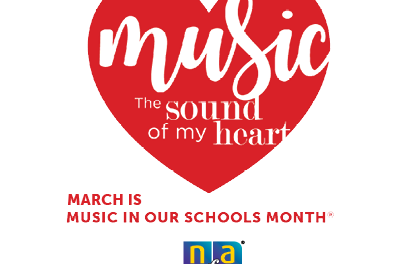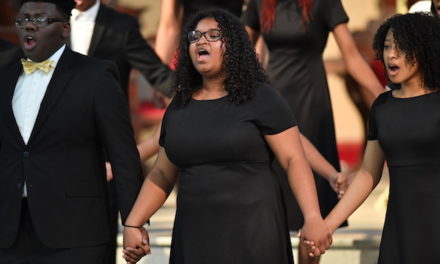Although universities do much to prepare music educators to begin their career, teaching music at any level in today’s schools requires the willingness to deal with “on the job” training. All young teachers, no matter the subject, must leave any ego “at the door” and must be willing to learn and improve their craft EVERY DAY.
1) Work to create and maintain a positive and professional relationship with your administrators.
Make sure you consult your department head and/or assistant principal or principal before making any major decisions involving the band program. Keep them informed! Don’t bug them, but make sure they know what’s going on with the band. Try to find a short time where you can sit with your administrators and give them an overview of your vision for the future. Remember that if you go into your principal and complain, it’s probably the 50th complaint they’ve heard that day. Go in with more than just the issue and have some possible solutions. Invite your administrators to concerts, contests, and festivals. If you have a marching band, ask your principal to go through warm-up and actually come on the field with the group. Make sure you provide all the current band spirit wear for your principal! Don’t laugh! It’s important!
2) Work with your most positive parents to create a band booster group.
Don’t forget to constantly thank your parents for their assistance with things like uniform maintenance, raising money and putting out the “good word” about your program. Make sure your parents understand that YOU make the decisions for what’s best for the program, but you should always listen and consider parent input. Deal with the positive situations in public and with the full parent group, but deal with any negative situations in private, either with a board of directors or your band booster president. There must be a POSITIVE relationship between the director and the booster group and that relationship must be based on mutual TRUST. Consistent COMMUNICATION is the best way for a director to earn the trust of parents.
3) Make sure your groups are fundamentally solid.
Set aside enough time in rehearsals to work on tone quality, blend, balance (especially within music), technique, intonation, and musicianship. That’s a long list, but you cannot skip steps when it comes to developing your ensemble. Remember that you can rehearse the same music for weeks and still not sound good on your concerts and at festivals if your band is not built on basics. For example, a trumpet section that understands and applies the concept of “blending” will always sound like they have better tone and intonation than a trumpet section that doesn’t understand the concept. If you can’t demonstrate characteristic sounds on the instruments, then bring in good college players or local private teachers to do so. If these folks are not available, play great recordings of SOLOISTS on each instrument throughout the year so students will always have a model for their sound. Keep in mind that many bands don’t do well at festivals because of a lack of sonority when they play. You must insist on excellence every time your group plays, whether it’s on a long tone, technique exercise or a section of music.
4) Create a culture of excellence and integrity within all areas of the band program.
Work with your students and student leaders to develop the mantra of “excellence as a lifestyle”. That simple phrase covers work ethic, behavior and respecting others, as well as setting a standard in everything that your staff, your students and your band parents pursue. I am a big believer that the quality of a person’s life is related to their attempt to pursue excellence in all that they do. My great friend, Freddy Martin, taught me that there is no “wrong” or “right” in rehearsal. There is only “getting better”! Instead of making a negative comment to an individual or section, ask them if they can make it better the next time. With your help and suggestions, I’m betting your students will “get better” and have a positive experience in band. Ask yourself after each rehearsal: “Are my students eager to come back and make music again tomorrow?” If you’re not sure, maybe a more positive approach will help. Students need “information” more than they need to be told they are right or wrong. Make sure the community, as well as the rest of the school respect the band program. Support other areas of the school by providing groups to play at athletic or special school/community events.
5) Get better as a musician, a rehearsal technician and as a leader everyday.
The most energetic teachers are those who can’t wait to share NEW information with their groups. Attend clinics and workshops, go watch great teachers in front of their ensembles, and constantly invite other conductors or private teachers to work with your band or to run sectionals.
Watch and learn! Listen and learn! IF YOU DON’T KNOW SOMETHING, THEN FIND SOMEONE WHO DOES!
Surround yourself with people that are better than you in certain areas. Push yourself to become that teacher that students remember for years! Even if you only have ten students in your band, get help to make them sound amazing. Don’t make excuses about why things can’t happen at your school. It all depends on the teacher in front of the room: YOU!
– Richard Saucedo, Retired Band Director Carmel H.S., Carmel IN, Freelance Arranger and Composer



